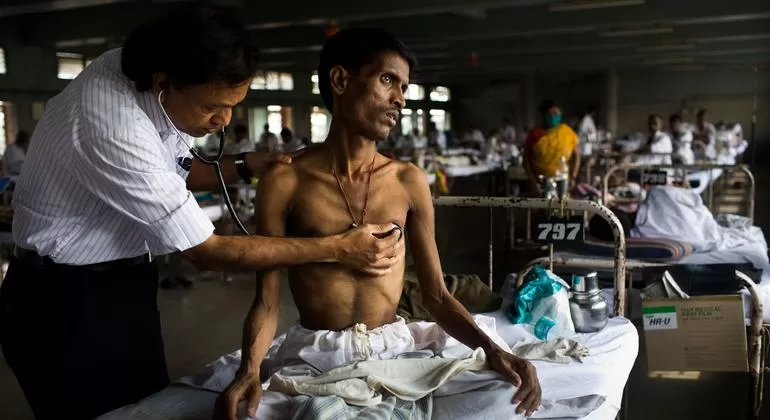
January 17, 2024
Tuberculosis (TB), a global health menace claiming 1.6 million lives and affecting 10.6 million individuals in 2021 alone, faces a surprising accomplice in its lethal journey: malnutrition. A groundbreaking review paper, led by researchers at Boston University Chobanian & Avedisian School of Medicine, contends that malnutrition’s role in TB incidence is a neglected but significant aspect demanding attention in global TB elimination strategies.
In the review, orchestrated by Madolyn Dauphinais, MPH, and collaborators from Cornell University, the University of Virginia, the International Union Against Tuberculosis & Lung Disease, and the Jawaharlal Institute of Postgraduate Medical Education and Research, researchers highlight the underexplored domain of nutritionally acquired immunodeficiency syndrome (N-AIDS). Drawing parallels with the more recognized HIV/AIDS, N-AIDS emerges as a crucial factor that should not be sidelined in the fight against TB.
Corresponding author Pranay Sinha, MD, an assistant professor of medicine at the school, underscores the need for action on malnutrition to instigate substantial changes in TB incidence and mortality rates. The review delves into over 75 papers on nutrition and TB, emphasizing the significant influence of malnutrition on immunodeficiency, comparable to the impact of HIV.
The researchers draw attention to malnutrition as a leading global cause of immunodeficiency, placing individuals with severe malnutrition at an elevated risk of TB. Sinha, also an infectious disease physician at Boston Medical Center, advocates leveraging existing knowledge about malnutrition to enhance TB detection, treatment, and prevention.
While acknowledging the importance of developing advanced tools, the researchers argue that solutions should extend beyond the biomedical realm. They point to a study within their review, revealing a 40% reduction in TB incidence among household contacts of TB patients through the provision of an inexpensive food basket. Sinha emphasizes the social dimension of TB, stressing that the fight against this disease requires multifaceted approaches.
The researchers believe that addressing malnutrition will yield benefits beyond TB, proposing nutritional interventions as a means to enhance TB management. Their paper aims to reshape perspectives among advocates, clinicians, policymakers, and the public, urging a more comprehensive approach to global health investments in the battle against TB.
This groundbreaking review is now available online in BMC Global & Public Health, heralding a call to action against malnutrition as an integral player in the complex TB landscape.











